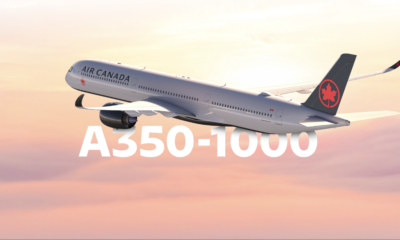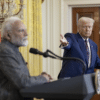Trump Presidency
Federal Court Blocks Most Trump Tariffs, Declares Presidential Overreach
In a landmark legal defeat for President Donald Trump, a federal trade court has struck down most of the tariffs he imposed on U.S. imports, ruling that he exceeded presidential authority under the Constitution and federal law. The decision to block by the U.S. Court of International Trade represents one of the most significant checks yet on Trump’s aggressive use of tariffs as a tool of foreign policy and economic leverage.
The court’s three-judge panel ruled that Trump’s blanket tariffs—imposed under the International Emergency Economic Powers Act (IEEPA)—violated the constitutional separation of powers, which grants Congress exclusive control over international trade. The judges issued a permanent injunction, putting a block on all tariff orders issued under the IEEPA since January.
“The President’s actions are impermissible not because they are unwise or ineffective,” the panel wrote, “but because federal law does not allow them.”
Markets Rally as Tariffs Fall
Wall Street and global markets immediately reacted to the decision, with the U.S. dollar surging and equities rising across Asia. Traders welcomed the clarity after months of uncertainty surrounding the scope and legality of Trump’s tariff trade actions.
While the court’s ruling on the trump tariff block struck down broad, across-the-board duties, sector-specific tariffs on steel, aluminium, and automobiles, which were enacted under separate statutes, remain in place.
Trump Administration Pushes Back, Files Appeal
Within hours of the decision, Trump’s legal team filed a notice of appeal, calling the court’s authority into question. A White House spokesperson insisted that the trade deficit constitutes a national emergency, claiming the court had no right to override or block presidential judgment in such matters.
“It is not for unelected judges to decide how to properly address a national emergency,” said White House spokesman Kush Desai.
Small Businesses, States Celebrate Win over Trump Tariff
The Liberty Justice Centre brought the case on behalf of small businesses, ranging from importers of wine and musical instruments to makers of educational supplies. A parallel lawsuit by 12 U.S. states, led by Oregon Attorney General Dan Rayfield, argued the tariffs were “unlawful, reckless, and economically devastating.”
“This ruling reaffirms that our laws matter,” Rayfield said. “Trade decisions can’t be made on a president’s whim.”
Trump Tariff Strategy in Jeopardy
Trump had used sweeping tariffs to pressure trading partners, reshape global supply chains, and appeal to his base with promises of bringing jobs back to the U.S. The court’s ruling undercuts that leverage and could slow ongoing negotiations with China and the European Union.
iPhone Shock: Trump Tariffs Send China Shipments to US Crashing to 14-Year Low
While analysts at Goldman Sachs cautioned that Trump still retains tools to impose sector-based tariffs over the use of IEEPA, the ruling casts significant doubt on any broad-based trade action moving forward.
As legal appeals begin, businesses and policymakers worldwide are now watching closely, wondering whether this marks a turning point in the United States’ fraught approach to international trade.









































Pingback: Strongman or Softy? Trump Mocked as ‘TACO’ Over Tariff Flip-Flop
Pingback: Trump’s Tariffs Just Crashed the Global Economy—OECD Alarm
Pingback: US Supreme Court: Door To Historic $90 Billion Tariff Refund Battle
Pingback: Trump Promises $2,000 Tariff Dividend Check for Americans, How?